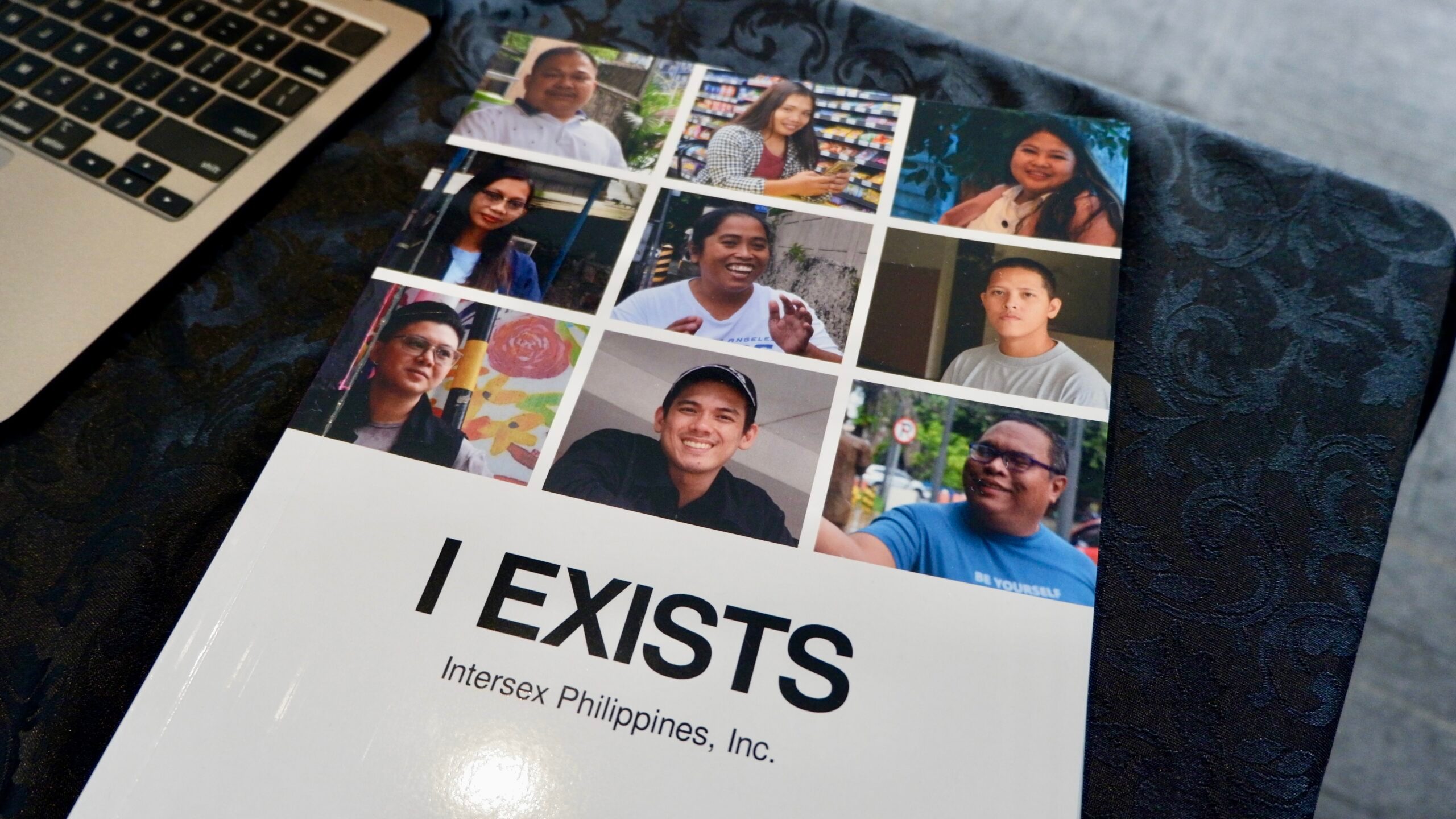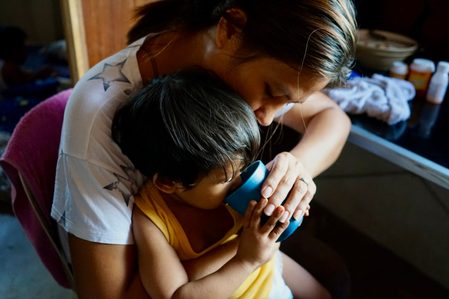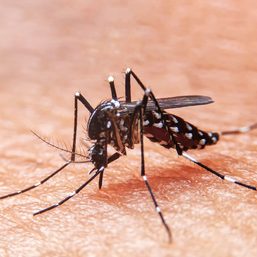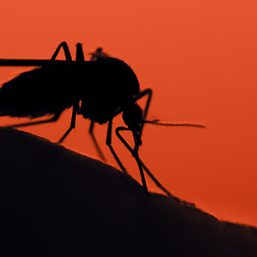SUMMARY
This is AI generated summarization, which may have errors. For context, always refer to the full article.

In the LGBTQIA+ acronym, it’s likely you’ve seen people identifying with most of the letters in popular media or in person. The lesbian, gay, bisexual, transgender, queer, intersex, and asexual community as a collective have long been asserting their place and rights in society.
But one of the letters you may not have encountered are the “I”s – intersex. People familiar with the basics of gender theory might know that intersex people have deviances in their physical sex characteristics.
Many may think that everyone is born as strictly male or female, with no overlaps, but such is not the case.
Mainstream media has sometimes made a spectacle of intersex people’s sex characteristics – like highlighting “two sets of genitals” or the desire to be “normal” through surgical correction. While ambiguous genitalia is a sign of being intersex, not-so-obvious hormonal and chromosomal patterns are indications too.
Here are some things you should know about the intersex community.
What is intersex?
Intersex people are born with sex characteristics – like reproductive organs, hormonal patterns, or chromosomal patterns – that do not fit typical binary notions of male or female bodies, according to the United Nations (UN) human rights office.
Intersex people can have variations in their chromosomes, genitals, or internal reproductive organs, like their testes or ovaries.
Sometimes, an intersex person’s biology may not align with how they are appearing externally – like a person born with XX chromosomes (female) displaying male characteristics later in life, like a male appearance, or the lack of a functioning female reproductive system.
Being intersex in itself is not a disease, although some intersex people have special medical needs or life-threatening conditions.
“Throughout history, individuals with intersex traits have existed, though contemporary society is increasingly acknolwedging the diversity of human anatomy,” intersex rights organization Intersex Philippines said in a handout.
While the UN has a general 1.7% figure of babies born with sex characteristics that don’t fit into typical male or female anatomies, Philippine statisticians have yet to come up with a way to collect local data.
Is intersex another form of being gay?
Intersex is not a sexual orientation, like straight, gay, or bisexual. Intersex people, regardless of the sex they were assigned to at birth, may have any sexual orientation or gender identity.
Let’s recap what those mean. Sexual orientation refers to a pattern of who or what gender one is sexually or romantically attracted to. For instance, straight people are attracted to the opposite gender, gay people are attracted to the same gender, and bisexual people are attracted to both.
There are other sexual orientations like pansexual: attraction to a person regardless of their gender, or asexual: one who does not feel sexual attraction towards any gender.
Gender identity, meanwhile, refers to the gender one identifies as. This no longer has anything to do with attraction, but who they see themselves as. This is a key consideration for transgender individuals in self-discovery – when they are tagged as transgender, it means that the sex assigned at birth does not conform with the gender that they feel they truly are. “Cisgender” is the opposite – when a person’s sex at birth aligns with that person’s identity.
Non-binary people are those who do not exclusively identify as a man or woman. Queer is an umbrella term for anything other than straight or cisgendered, as some people are not comfortable with certain labels.
Intersex people can be straight or gay, cisgendered or queer. They can identify themselves as any gender, whether or not it aligns with the sex assigned at birth.
How are intersex people and transgender people different? While some intersex people share trans people’s dilemma of gender dysmorphia, the difference lies in the body. According to the Intersex Society of North America (ISNA), people who identify as transgender are usually those born with typical male or female anatomies, but “feel as though they’ve been born into the ‘wrong body.’”
“Most people with intersex conditions come to medical attention because doctors or parents notice something unusual about their bodies. In contrast, people who are transgendered have an internal experience of gender identity that is different from most people,” said ISNA.
What challenges do intersex people face?
Intersex people are often misunderstood, and made to believe that their conditions are irregular, abnormal, or disordered. After all, one term used to describe their variations is “Disorders of Sex Development” or DSD, but advocates have said this term can be pathologizing.
While there are some surgical interventions that are medically necessary for intersex people, others may not be. Some parents are led to believe that surgical corrections aimed at conforming bodies to typical anatomies are necessary to make their intersex children “normal.”
Intersex children sometimes undergo medically unnecessary, irreversible surgeries and treatments without their consent. This is a longstanding global experience, with the then-United Nations special rapporteur on torture in 2013 calling on all states to repeal any law allowing intrusive and irreversible treatments like genital-normalizing surgery, involuntary sterilization, and other “reparative therapies” without the free and informed consent of the person involved.
In an interview with Rappler, Intersex Philippines co-founder Jeff Cagandahan said that while there is no shortage of endocrinologists in the Philippine health system, it is difficult to find “intersex-friendly” endocrinologists, who do not push parents of intersex children to avail of procedures that would conform their children’s bodies with the sex they were assigned at birth.
The organization said that many of these kinds of surgeries are not medically necessary, and can be postponed until the individuals concerned can decide for themselves.
“Many intersex individuals, both young and old, recount the adverse effects of unwanted surgeries, such as diminished self-esteem, depression, anxiety, and difficulties in trust and intimacy. Despite well-meaning intentions, hastily attempting to alter a child’s physical differences typically exacerbates, rather than resolves, issues,” the group said.
Meanwhile, some deal with life-threatening intersex variations, such as classical congenital adrenal hyperplasia (CAH), which is caused by an imbalance of hormones. Children with classical CAH have to undergo lifetime medication, and failure to do so may cause death.
Cagandahan said that the biggest challenge for intersex people in the Philippines is access to medicine. Based on their group’s research, just one Metro Manila-based specialty compounding pharmacy, Apotheca, produces the medicines that most in their community need.
The challenge in access accounts for practical availability and the costs of medicines. Street vendor Jenelyn Puto, mother of a child with CAH, said that she has to shell out at least P12,500 every three months for her son’s medicines and lab procedures, and Apotheca does not sell the medicines in small amounts (tingi) which would have been a more affordable option for the family.
While the Philippine Health Insurance Corporation recognizes CAH as a rare disease, life-saving medicines for its treatment are not part of the public healthcare packages, Cagandahan pointed out.
And like the rest of the LGBTQIA+ community, intersex people also experience gender-based discrimination. In the United States, the Center for American Progress (CAP) found in a 2020 study that 69% of their LGBTQ+ intersex respondents reported experiencing some form of discrimination in the past year, roughly twice the rate of discrimination reported by LGBTQ+ non-intersex respondents, at 35%.
CAP also found that 88% of their intersex respondents said they experienced discrimination from a doctor or healthcare provider, including refusal of care, harsh language, or physical abuse.
How can I be respectful towards an intersex person?
Being intersex is unique for each individual, and experiences may not necessarily dictate on sexual orientation or gender identity. This is why, according to Intersex Philippines, it is wise not to assume how they identify.
When describing people who are intersex, Intersex Philippines suggests the following phrasing examples:
- Jeff is an intersex person.
- Jeff is intersex.
- Intersex people are…
- People who are intersex…
Meanwhile, the group wants the media and public to avoid using the term Disorders of Sex Development, and recommends replacing “disorders” with “differences.”
Calling an intersex person a “hermaphrodite” may also be considered derogatory. The group also thumbed down the practice of unnecessarily asking intersex persons questions about their bodies and genitals, and surgeries they may or may not have had.
Asking such questions, and focusing on these in media coverage, may “distract… readers and viewers from understanding the whole person.”
Some intersex people might opt for non-traditional pronouns, like the gender-neutral “they/them” or “ze/zir.” If you are unsure of a person’s pronouns, you can respectfully ask what their preferred pronouns are. This goes not just for intersex people, but for anyone of any gender identity, too.
“It is important to honor individual choice around terminology, identity, and other personal information when describing their own personal experience,” said Intersex Philippines.
On February 23, the group launched a coffee table book, I Exists, which features personal stories of intersex Filipinos. People seeking to know more about their stories can publicly access the book’s soft copy.
The group described the book as a “conversation starter, a narrative of inclusivity, and a tribute to embracing authenticity.” – Rappler.com
Add a comment
How does this make you feel?


![[OPINYON] Diborsiyo sa mata ng isang anak](https://www.rappler.com/tachyon/2024/06/new-school-divorce-children-june-13-2024.jpg?resize=257%2C257&crop=294px%2C0px%2C720px%2C720px)


















There are no comments yet. Add your comment to start the conversation.